We’re often told that we shouldn’t trust first impressions.
In the case of Baka forest hunter-gatherer communities in Cameroon, this applies more than ever. Whilst possessing intricate ecological knowledge about their rainforest, built up over a significant chunk of human evolutionary history, they may not be the first people you would turn to when initiating a smartphone app.
Having lived a nomadic lifestyle roaming deep in the Central African rainforests up until colonial and post-colonial governments removed these masters of the forest to the roadside, the Baka are not the most experienced with smartphones (or any other phones for that matter). Unfortunately, considering them as useless and mere obstructions has informed the majority of conservation projects in the south and east of Cameroon, resulting in Baka communities excluded from management plans for their forest and wildlife.
Recognising the essentiality of local involvement for the sustainability and success of conservation projects, we decided to consult tiny, rural Baka hunter-gatherer and Bantu farming forest communities in Cameroon to gather their thoughts on using smartphones to report illegal wildlife crime. This has been a bid to reject the first impressions of technological inability and initiate a revolution in how conservation is done.
And boy has it paid off.

Nine months since the project’s beginnings (see my previous post), sixteen villages have been identified, five of which have now completed the free, prior, and informed consent process (FPIC) and technological training, and are actively reporting illegal wildlife crime using a text-free interface on smartphones as we speak.
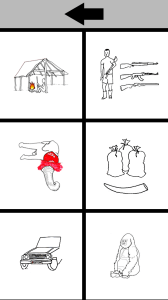
Unexpectedly, the communities submitting the first records and seemingly having quickly mastered the use of the app for its purpose were not the Bantu farmers but the Baka hunter-gatherers! Against the barrage of stereotyping, marginalisation, and disempowerment by national actors and some international conservation organisations, we have shown that if offered the chance to be involved, these indigenous communities jump at the opportunity and can produce vital data for conservation.
The more difficult challenge in some ways is working with the literate, technologically-experienced ministry officers, in order to verify and act on reports; though there are some very dedicated staff among them, corruption, laziness, and a lack of motivation and capacity are issues which need immediate attention if we are serious about community reporters making a tangible difference to the annihilation of wildlife.
With great help from my two heroic local Zoological Society of London (ZSL) colleagues, Samuel Leboh and Simeon Eyebe, we have built good relationships with each community, achieved through spending time not working with the community members – looking for monkeys, playing football, picking papaya, sharing dinner, and listening to the stories of elders. Certainly, the use of Sapelli here would be much reduced if such a relationship had not been achieved.
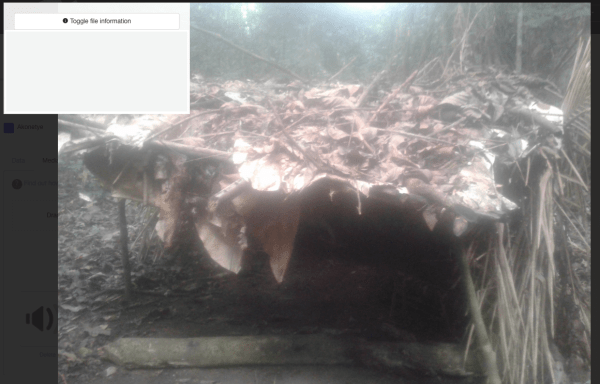
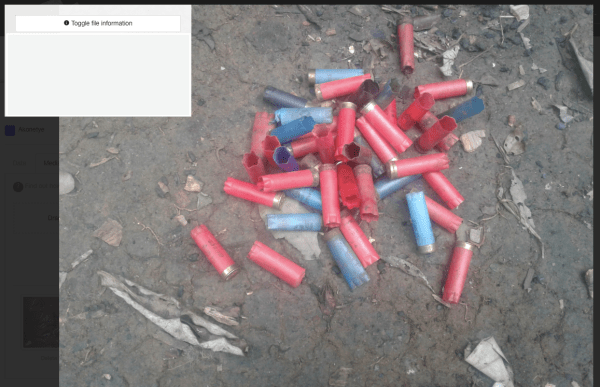
“This is advantageous as it shows our ability to work, to be part of it and show we are not lazy”
– Baka reporter
The implications of this for the conservation of biodiversity are big; rainforests are the most biodiverse environments on Earth, a large area of which overlap with the ancestral territories of indigenous peoples and remaining hunter-gatherers. If this model shows further positive results and can be replicated elsewhere, this represents a very positive step towards protecting biological diversity, cultural diversity, and indigenous rights.

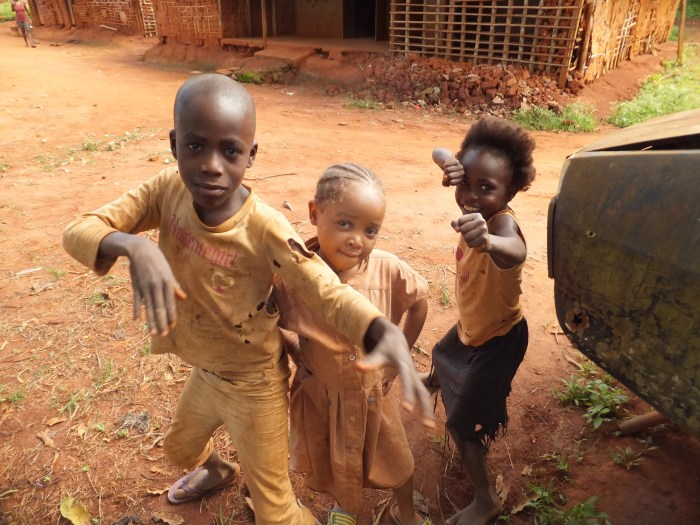
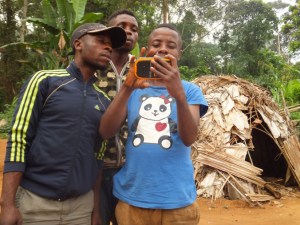
2 Comments